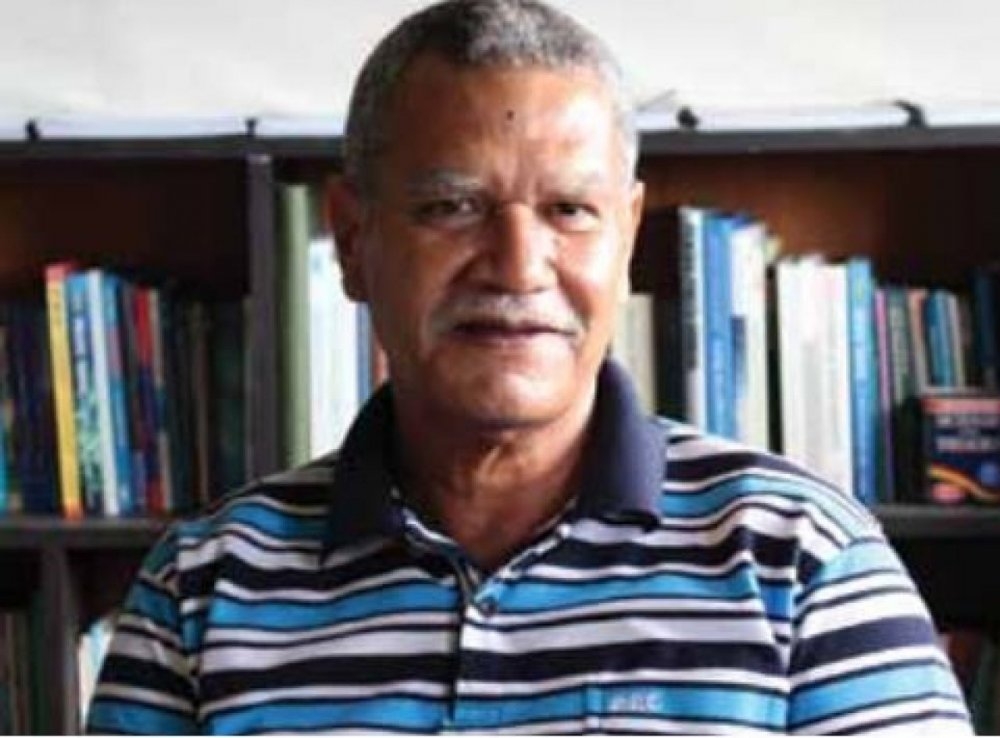I was only two years old when Nigerian author Chinua Achebe published his novel, Things Fall Apart, in 1958.
Achebe’s novel focused on the struggles, chaos and bewilderment which are the consequences of a culture on the verge of change.
Sixty three years on and I find myself, like Achebe’s principal character, Okonkwo, also grappling with the effects of change.
However, the change confronting me and my fellow Fijians is not so much cultural as it is political – imposed through political power wielded by a slim but decisive majority under Fiji’s new parliamentary system.
Some might argue that what is now happening in Fiji is simply a continuation of the so-called “Clean-Up Corruption” coup of 2006 (they will also argue that it’s more politically correct to call the events of 2006 a “revolution”).
Fifteen years on from that coup, Fiji is now on the verge of having a special Anti-Corruption Division within its court system presided over by Judges and Magistrates who will “deal specifically with cases relating to anti-corruption law”.
“By having specialised courts it will give not just the prosecutors but those who actually get prosecuted a particular level of certainty and indeed we will further reinforce the rule of law because it will get rid of inconsistency,” was one of the justifications from Fiji’s Attorney General, Mr Aiyaz Sayed-Khaiyum.
Calls from the Fiji Law Society for more robust discussions on the matter, before endorsement by Parliament, were dismissed by Sayed-Khaiyum. Dismissed also, was the argument that Fiji’s current court system is more than well equipped to deal with cases of corruption.
Similarly, calls for widespread dialogue over the elimination of assessors from Fiji’s court system fell by the wayside.
The appointment of assessors in court proceedings has, over the centuries, provided an accused person access to a panel of his/her peers who provide the human element of rationalizing judgment to conform to changing community values.
Peer assessment is also a societal safety valve ensuring decision-making is not just the province of elites (like Judges and Magistrates).
The Bill legislating the change was passed by Parliament.
“In the modern day world a person’s guilt or innocence should not be determined by assessors who are going to look at the person on an ethnic basis,” was the response from Sayed-Khaiyum to those opposing the change.
Trying to accept that the “old” must give way to the “new” and that some things are bound to fall apart, I keep asking myself: “Why change something that works well and is not broken?”
And in my old age, the response is just as quick and matter-of-fact: “Because the Fiji government currently has the political power to change things. With or without question.”
Apparently, the more I cocoon myself in my Western abode, hundreds of kilometres away from the toxic influence of decision-makers, the clearer I see things falling apart.
Anyone in Fiji on a work permit can now be detained in the middle of the night, transported hundreds of kilometres during COVID curfew hours and deported before a court Judge is fully awake, bathed and sufficiently refreshed to begin a new court day.
“Isn’t that akin to a judicial process falling apart?” I ask myself. I wonder if the Vice Chancellor of the University of the South Pacific, Professor Pal Aluwahlia might be asking himself the same question
The Bainimarama government has justified its deportation of the Professor and his wife by quoting Section 13 of Fiji’s Immigration Act 2003 which prohibits foreigners from conducting themselves in a manner prejudicial to the peace, defence, public safety, public order, public morality, public health, security, or good government of Fiji
Guilt or otherwise notwithstanding, requests for an explanation of the precise breach of the Immigration Act have fallen on deaf ears. So have questions about the couple’s human rights.
In my old age, I keep reminding myself it’s only one of the many more changes we, as a country, have to grapple with.
Just like the impact of COVID-19 on Fiji’s economy and the March 2020 Billion Dollar COVID Stimulus package which formed part of the COVID-19 Budget Response.
Our Attorney General, who also happens to be our Minister of Economy, Mr Sayed-Khaiyum assured us all that the budget would “arm doctors and nurses with the tools they need to combat this virus and keep themselves and Fijian families safe”.
That it would “grant resilience to all the workers and companies who are staples of our economy and way of life, but who have been cut off from that economy by COVID-19”.
“This budget gives businesses the flexibility they need to keep their people, invest in new opportunities and prepare for the inevitable end to this pandemic,” Sayed-Khaiyum assured us all.
Just one year later came the news that the Japanese government will provide a $200 million emergency loan to Fiji for COVID-19 response.
The emergency loan support will enable the government to implement its planned activities for the 2020-2021 financial year and direct resources for COVID-19 response such as strengthening health and medical services.
This leaves me and my fellow “equal citizens” of Fiji wondering where things have “fallen apart” in our COVID-contained paradise!!
